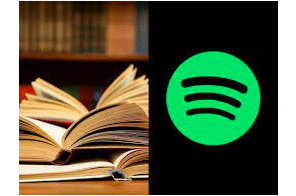Here’s the introduction to their piece. and although they talk about public libraries and books in general the thinking behind the piece screams ..who can create ground zero for legal information and put you know who and you know who out of business.
For many families and schools, e-books were a lifeline to keep kids reading during lockdown.
Total numbers of digital books borrowed from libraries hit 289 million in 2020—a 33 percent increase over 2019. That makes the feisty public library the main challenger to Amazon, which almost completely monopolizes private sales of e-books and sold 487,000 in 2020.
But there is a giant problem.
Many e-books have incredibly limited availability or are not available at all at public libraries, and library budgets are strained covering the escalating costs of e-book demand.
Publishers make the costs for e-books prohibitive for libraries. For example, before COVID hit, a typical deal at Macmillan was that public libraries had to pay $60 for any e-book and could lend it out only 52 times or for two years, whichever came first, after which they had to repurchase the e-book. Publishers temporarily lowered some prices and loosened rules on select titles during the pandemic, but the costs overall still severely limit the ability of libraries to offer many books. Some publishers, particularly Amazon, still refuse to let libraries get access to any of the e-books they publish, while publishers like Macmillan have withheld new releases from libraries
The reason publishers can charge higher price is because of a quirk in copyright law, called the “first sale doctrine.” Unlike with physical books, the courts have said libraries have no right to buy an e-book and then lend it to their members. Instead, publishers only “license” e-books and can deny that license to a library or condition the right to lend the e-book on paying that much higher price.
Some state legislators are outraged enough they have proposed legislation to force publishers to license e-books they are currently withholding from libraries, and Maryland enacted such a law this spring. But these will likely be challenged by publishers in court as preempted by federal copyright law.
For university libraries and their student patrons, the restrictions on electronic textbooks are even more severe. By one estimate, publishers refuse to license 85 percent of electronic versions of textbooks to university libraries, forcing students to either buy directly from the publisher or do without. And according to a survey during the pandemic of 82 campuses conducted by US PIRG, a consumer group focused heavily on student concerns, 65 percent of students have skipped at least one textbook purchase because of the costs.
When an e-textbook is made available to universities, it’s often more than 10 times the retail price, and may come with additional conditions and subscriptions that drive the costs even higher. “You have to pay thousands for a package with a few eBooks you need and lots of things you don’t,” complains librarian Joanna Anderson, who co-authored a letter protesting these costs signed by 3,000 librarians, academics and students.
The complicated legal distinction between selling physical books and “licensing” e-books is one reason private attempts at subscription book services for monthly fees have mostly failed or had limited book availability. In the publishing trade, publishers have the right to sell books, but authors often retain the copyrights that would allow licensing to monthly subscription services and have their own demands for fair compensation, so deals for subscription services are often legally impossible or economically untenable. One version, Oyster, shut down a few years ago.
Epic! Books has had modest success with a subscription service solely for a subset of kids’ books used mostly by schools. Scribd, the most successful surviving version, still lacks most popular books.
Amazon has created an end-run around this problem by creating an unlimited reading program for subscribers solely with authors who self-publish with Amazon itself and opt into the program. Estimates are that nearly 50 percent of paid e-books downloaded are now self-published, largely due to the popularity of Amazon’s Kindle Unlimited, making Amazon’s program the most successful model for a monthly unlimited reading service—but for only a limited subset of books.
Read more at https://slate.com/technology/2021/06/spotify-e-books-amazon-publishers-libraries-licensing.html




